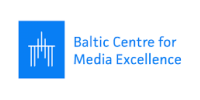Webinar | Stay sharp during elections – How cognitive biases and media influence our decisions
Join SALTO Participation & Information during the ALL DIGITAL Weeks to discover how cognitive biases and media might influence our reasoning and decision-making during the upcoming elections.
In this public YouTube Live webinar organised by SALTO Participation & Information, we will explore the vulnerabilities that lie in each and every one of us – our flawed perceptions of the world. Cognitive biases are used against us in information manipulation activities, such as propaganda and strategic disinformation. We can build our informational resilience by being aware of these vulnerabilities and training ourselves to double-check our “gut feelings” and initial reactions to information we encounter. Maria Murumaa-Mengel will discuss 15 propaganda techniques and the cognitive biases that they are built on, we will collaboratively seek examples and prepare our brains for the upcoming elections.
There will be a Q&A session in the second half of the webinar, during which the audience will get a chance to ask questions. During the event itself, the audience can submit questions and react directly through the YouTube Live chat.
Watch the webinar live on SALTO Participation & Information YouTube channel on Thursday 23 May 2024 at 15:00-16:15 CEST. It is a free and fully public event, with no registration.
Meet Maria Murumaa-Mengel
Maria Murumaa-Mengel (PhD in Media and Communication) is currently working as an Associate Professor of Media Studies at the Institute of Social Studies, University of Tartu, and as a member of the Baltic Engagement Centre for Combating Information Disorders. She is involved in research primarily focusing on young people’s use (and non-use, ‘going off the grid’) of social media, different literacies (e.g. digital, MIL, social media, porn), and various online risks (e.g. gendered online hate, online shaming, online child sexual abuse and grooming). Maria Murumaa-Mengel’s main strengths lie in teaching and supervising – she is the recipient of the 2020 Estonian National Award for the Teacher of the Year and has supervised several award-winning theses. In regard to digital media literacies, she is a firm believer in the ‘know thyself’ ground rule – it all starts with knowing how we as people process information in the increasingly mediatised and datafied world.





